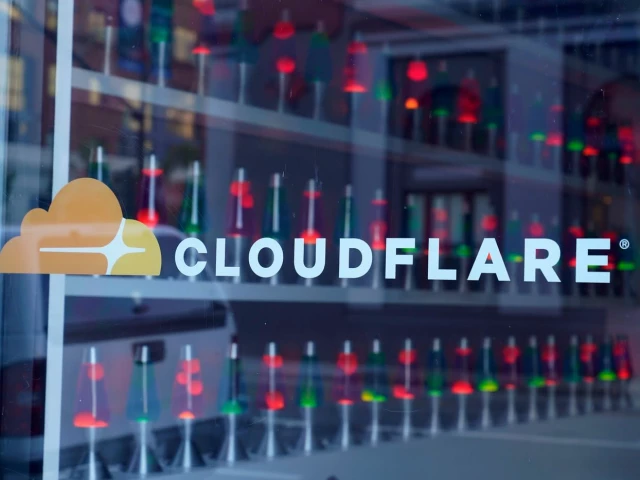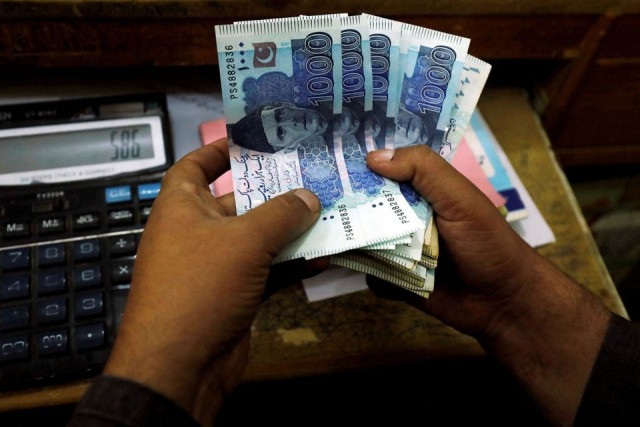Business
Cloudflare outage exposes Pakistan’s reliance on foreign internet systems | The Express Tribune

KARACHI:
The recent Cloudflare outage that disrupted services across Pakistan has highlighted the country’s heavy reliance on foreign digital infrastructure, underscoring the urgent need for a national preparedness strategy.
When contacted, officials at the Federal Ministry for IT and Telecommunication (ITT) told The Express Tribune that the Government of Pakistan has a robust vigilance system under the National Cyber Emergency Response Team (NCERT). The NCERT monitors systems 24/7 to ensure safety.
On the failure of foreign Content Delivery Networks (CDNs) exposing Pakistan to digital vulnerability and the risk of an absolute halt, an official said Pakistan’s own infrastructure is resilient but interconnected with global networks. “Hence, a global outage naturally affects Pakistan.” The official, however, did not explain Pakistan’s preparedness for such vulnerabilities.
ITT Minister Shaza Fatima Khawaja was on an official foreign trip and could not be reached.
Cloudflare, a US company whose services include defending millions of websites against malicious attacks, experienced a technical glitch that prevented internet users from accessing several vital websites. Many users complained about slow browsing and denied access to critical sites like the Pakistan Stock Exchange, the Sindh High Court, X and OpenAI, as those too went down.
Sector specialists told The Express Tribune that the Cloudflare outage did not just disrupt services; it exposed how thin Pakistan’s digital foundations remain. IT architects and network engineers said Pakistan’s heavy dependence on foreign CDN and routing layers leaves even local platforms vulnerable to failures occurring outside the country.
They argued that Pakistan urgently needs stronger domestic infrastructure, including locally hosted services, regional Internet Exchange Points (IXPs) and deeper investments in data centres so critical traffic remains within national borders instead of relying on distant networks.
Noman Ahmed Said, Sai Global CEO, said that when Cloudflare, one of the world’s largest internet infrastructure companies, suffered a technical failure on November 18, the impact rippled across continents within minutes. Pakistan felt it immediately. Websites halted, online transactions slowed and digital services struggled to stay online.
The failure did not originate in Pakistan. It was triggered by a faulty internal file inside Cloudflare’s global network. “But the speed with which it brought parts of Pakistan’s digital ecosystem to a standstill revealed a larger, uncomfortable truth that we remain dangerously dependent on foreign platforms without building our own layers of resilience,” he added.
Recalling similar events, he said this was not the first time. Over the past two years, Pakistan has faced a series of disruptions. In January 2025, an AAE-1 undersea cable fault slowed nationwide internet traffic. In August 2025, a major disturbance left the country operating at only 20% connectivity. In September 2025, regional cable cuts disrupted South Asian routes. In 2024, political shutdowns and platform blocks further affected digital services.
“These repeated incidents show a structural issue mirroring that our digital growth has outpaced the infrastructure needed to support it.”
Economic toll
Said noted that short disruptions may seem harmless, but they carry real economic costs. Online banking, e-commerce, remote work and public services are affected.
In 2024 alone, Pakistan lost an estimated $1.6 billion due to internet restrictions and shutdowns, impacting over 80 million users. Daily suspensions can cost over Rs1.3 billion in lost productivity.
The Cloudflare outage lasted only hours, yet it demonstrated how a small global technical glitch can cascade into national-level consequences.
In contrast, Pakistan Software Houses Association (P@SHA) Chairman Sajjad Syed maintained that Cloudflare experienced a temporary global issue affecting only the sites that rely on it, while non-Cloudflare sites remained unaffected. He said this is normal, just as when Microsoft Teams goes down while Google remains operational.
Cloudflare is widely used, but alternatives such as Akamai, Fastly, AWS, Google Cloud and Microsoft Azure exist. He emphasised that this is not a failure on Pakistan’s part, noting that even major platforms including Google, Facebook, Instagram and Microsoft have experienced outages. He said a recent Microsoft outage disrupted several US airlines and companies.
While millions of users across the country experienced disruption, the Pakistan Telecommunication Authority (PTA) remained conspicuously indifferent. At a time when Cloudflare acknowledged its failure and issued an apology, the PTA issued only a brief, perfunctory press statement, failing to address the scale of inconvenience or offer meaningful guidance. This response highlighted regulatory apathy and raised questions about Pakistan’s claims of digital resilience and preparedness for large-scale disruptions.
A PTA spokesperson stood by the press release, which stated the authority was closely monitoring a major global outage affecting X (Twitter) and Cloudflare. The statement added that PTA was in contact with global platforms and local operators and would continue to observe the situation until services were fully restored. “This is our stance,” she said.
What’s next?
Said suggested that internet access should be treated as national infrastructure, deserving the same priority as power, water and transport. He said the PTA must strengthen regulatory focus by shifting from content policing to enforcing network resilience, redundancy requirements and transparent outage reporting.
He said Pakistan also needs stronger domestic capacity through investments in internet exchange points, local data centres, content caching and cloud edge nodes. “Finally, the country should create a national cyber-resilience framework that defines critical services, assigns responsibilities and conducts national-level simulations,” he added.
“If Pakistan keeps reacting to outages instead of preparing for them, every global glitch will feel like a national crisis. Resilience, not firefighting, is the way forward,” he concluded.
In 2023, the World Economic Forum’s annual meeting ended with a stark warning after its Global Cybersecurity Outlook report revealed that 93% of surveyed experts expect a “catastrophic” cyberattack within two years. This catalysed an internet conspiracy theory that a so-called ‘collapse’ is near.
Local experts, however, dismissed the theory saying a complete collapse is extremely unlikely because the internet is decentralised and built with strong redundancy.
“Whenever a major outage occurs, social media revives theories about a ‘global internet shutdown’ in 2026 or 2028. These ideas are often sparked by misunderstandings of global cyber-risk discussions,” Said commented.
Business
Green energy exports: $10-bn green ammonia project positions India as global clean-fuel supplier; Kakinada plant nears key milestone – The Times of India

A $10-billion green hydrogen and green ammonia project at Kakinada in Andhra Pradesh is set to cross a major construction milestone, reinforcing India’s ambition to emerge as a global supplier of clean energy to markets such as Germany, Japan and Singapore.The first major equipment erection ceremony of AM Green’s Green Hydrogen and Green Ammonia Complex will be held on January 17 and will be attended by Chief Minister N Chandrababu Naidu and Deputy Chief Minister Konidala Pawan Kalyan, state government officials said, PTI reported.Billed as one of the largest clean-energy investments in India to date, the project involves a total outlay of $10 billion and is expected to generate up to 8,000 jobs during the construction phase, besides substantial high-skill employment during operations and across allied sectors including renewable energy, logistics, storage and port services.AM Green is developing India’s first and the world’s largest green ammonia complex at Kakinada, with a planned capacity of 1.5 million tonnes per annum, through the brownfield conversion of an existing ammonia-urea facility. The project will be commissioned in phases, beginning with 0.5 million tonnes per annum by 2027, scaling up to 1 million tonnes by 2028 and reaching full capacity by 2030.Once operational, the facility will enable India’s first exports of green ammonia, which is increasingly being adopted globally as a clean shipping fuel, for power generation and as a carrier for green hydrogen.The integrated project spans 7.5 gigawatts of solar and wind capacity, 1,950 megawatts of electrolyser capacity and 2 gigawatts of round-the-clock renewable power, supported by pumped hydro storage, including India’s first such facility at Pinnapuram in Andhra Pradesh.AM Green has already signed long-term supply agreements with Germany-based utility Uniper and is in advanced discussions with potential buyers in Japan and Singapore, establishing India’s first green-energy export linkages with Europe and advanced Asian economies.The project is aligned with Andhra Pradesh’s Integrated Clean Energy Policy, 2024, which seeks to position the state as India’s primary hub for green hydrogen and green ammonia. Once fully commissioned, the facility is expected to mark a structural shift from energy import dependence towards clean-energy exports, placing Andhra Pradesh at the centre of the global green-energy value chain.AM Green, backed by the founders of the Greenko Group, is developing the project through AM Green Ammonia, a partnership involving Malaysia-based Gentari, Singapore’s sovereign wealth fund GIC and the Abu Dhabi Investment Authority. Construction at the Kakinada site is already under way, placing it among a limited set of large-scale green ammonia facilities globally that meet Renewable Fuels of Non-Biological Origin (RFNBO) standards.Beyond production, the project showcases an end-to-end clean-energy ecosystem within a single state, encompassing large-scale renewable generation, round-the-clock green power backed by storage, hydrogen and ammonia production, and port-based export infrastructure.AM Green has also moved to strengthen global linkages. In May last year, it announced a partnership with the Port of Rotterdam Authority to create a dedicated green-fuel corridor linking India with north-western Europe, aimed at enabling annual trade of up to 1 million tonnes of green fuels valued at nearly $1 billion. Earlier, it tied up with global logistics firm DP World to develop green fuel storage and export facilities in India and overseas.“This is not merely an industrial project, but a strategic step in positioning Andhra Pradesh and India as leaders in clean-energy exports and climate action,” the state government said.
Business
Budget 2026 Should Support MSMEs, Critical Minerals For Boosting Trade Resilience: Deloitte

Last Updated:
Deloitte India urges FY27 Budget to boost MSME support and critical mineral security, job protection and advancing India’s global manufacturing and clean energy goals.

Budget 2026 Expectations.
Budget 2026: Deloitte India has pitched a sharper focus on MSME support and critical mineral security in the FY27 Union Budget, arguing that these measures are essential to strengthen India’s trade resilience and reduce external vulnerabilities amid rising global uncertainty.
In its Budget expectations note, Deloitte India said micro, small and medium enterprises play a pivotal role in the economy, accounting for nearly 46% of India’s exports and emerging as the second-largest employer after agriculture. According to the firm, easing financial and compliance-related pressures on MSMEs would help them cope with global volatility, sustain production and remain competitive in overseas markets.
The Union Budget 2026-27 will be tabled on Sunday, February 1.
“Strengthening MSMEs will safeguard jobs and drive inclusive economic growth, boost rural incomes and support India’s ambition to become a global manufacturing hub,” Deloitte said.
The firm recommended measures such as enhanced export credit availability, concessional financing and simplified digital compliance systems to reduce the regulatory burden on small businesses. It also called for comprehensive training programmes to improve last-mile competitiveness of MSMEs, particularly those linked to global value chains.
Deloitte further suggested targeted export incentives or enhanced duty drawback support for tariff-sensitive sectors such as ready-made garments, gems and jewellery, and leather, which are more vulnerable to global trade disruptions.
Highlighting the risks from an increasingly protectionist global environment, Deloitte Economist Rumki Majumdar said rising uncertainty from tariff hikes, changes in rules of origin and non-tariff barriers could disproportionately affect Indian exporters. While the direct impact of global trade frictions on GDP growth may be limited to 40-80 basis points, the spillover effects on MSMEs and employment could be far more severe.
“MSMEs contribute 30.1 per cent to GDP, account for 45.79 per cent of India’s exports and employ nearly 290 million people; disruptions in export markets or tightening trade rules pose serious risks to jobs and income stability,” Majumdar said.
Beyond MSMEs, Deloitte emphasised the need for a strategic push on critical minerals to secure supply chains and support India’s clean energy transition. It proposed setting up a dedicated critical minerals fund to finance overseas acquisitions and technology partnerships, ensuring long-term access to essential resources.
The firm also recommended deeper global collaboration with regions such as Africa, Australia and Latin America to secure upstream access to minerals, alongside joint research and development in mineral processing and recycling. In addition, it called for incentives to promote investments in renewable energy, green hydrogen and grid-scale energy storage.
Deloitte said expanded funding for exploration, extraction and processing of key critical minerals, including lithium, cobalt and rare earth magnets, would be crucial to reduce import dependence and strengthen India’s strategic and economic security in the years ahead.
January 16, 2026, 15:02 IST
Read More
Business
Pakistan Stock Exchange staged a strong comeback – SUCH TV

Pakistan Stock Exchange (PSX) on Friday staged a strong comeback, breaking the long bearish momentum as snowballing forex reserves have lifted investor sentiment.
During intraday trading, the PSX’s benchmark KSE-100 index gained a whopping 3,146.23 points to climb to 184,602.56 points, marking a positive change of 1.70%.
Out of 562 active companies, share prices of 375 advanced and of 67 declined while rates of 120 companies remained unchanged.
Economic analysts said the uptick offered some breathing space for the economy, even as the country continued to keep a close watch on external inflows and outflows.
Pakistan’s foreign exchange reserves inched up by $16 million over the past week, according to figures released by the State Bank of Pakistan.
The central bank said its official reserves rose from $16.0557 billion to $16.0718 billion, showing a modest gain during the week.
Overall, the country’s total reserves climbed to $21.2484 billion.
The State Bank also noted that commercial banks’ holdings went up by $5.6 million, reaching $5.1927 billion.
The central bank projects the FY26 current account deficit at 0–1% of GDP and sees reserves at $17.8 billion by June 2026 with planned official inflows.
A day earlier, the stock exchange dropped by over 1,100 points due to massive selling pressure.
The PSX had extended losses after recording an increase for a brief period as investors seemed cautious amid rising geopolitical tensions involving Iran.
During intraday trading, the KSE-100 index touched 183,717.53 due to strong buying in the early sessions before it turned bearish by losing 69.29 points to close at 182,500.52 points.
International officials have warned that US military intervention in Iran now appears likely and could take place within the next 24 hours amid sharply escalating tensions in the Middle East.
American, European and Israeli sources said preparations for possible action were under way as Washington began evacuating personnel from its major air base in Qatar.
-

 Politics1 week ago
Politics1 week agoUK says provided assistance in US-led tanker seizure
-

 Entertainment1 week ago
Entertainment1 week agoDoes new US food pyramid put too much steak on your plate?
-

 Entertainment1 week ago
Entertainment1 week agoWhy did Nick Reiner’s lawyer Alan Jackson withdraw from case?
-

 Sports5 days ago
Sports5 days agoClock is ticking for Frank at Spurs, with dwindling evidence he deserves extra time
-

 Business1 week ago
Business1 week agoTrump moves to ban home purchases by institutional investors
-

 Sports1 week ago
Sports1 week agoPGA of America CEO steps down after one year to take care of mother and mother-in-law
-

 Tech3 days ago
Tech3 days agoNew Proposed Legislation Would Let Self-Driving Cars Operate in New York State
-

 Business1 week ago
Business1 week agoBulls dominate as KSE-100 breaks past 186,000 mark – SUCH TV











